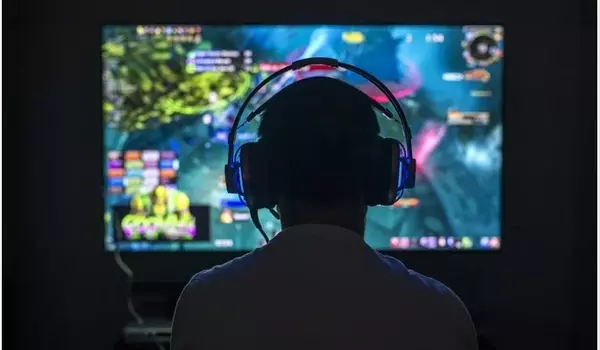Scientists have investigated how children’s screen habits in the United States correlate with the development of their cognitive abilities over time. They discovered that children who spent more time than average playing video games increased their intelligence more than the average, whereas TV watching and social media had no effect.
Researchers from Sweden’s Karolinska Institutet investigated how children’s screen habits in the United States correlate with how their cognitive abilities develop over time. They discovered that children who spent more time than average playing video games increased their intelligence more than the average, whereas TV watching and social media had no effect. The findings appear in the journal Scientific Reports.
Children are spending an increasing amount of time in front of screens. It is hotly debated how this affects their health and whether it has a positive or negative impact on their cognitive abilities. Researchers from Karolinska Institutet and Vrije Universiteit Amsterdam investigated the relationship between screen habits and intelligence over time for this study.
We didn’t examine the effects of screen behaviour on physical activity, sleep, wellbeing or school performance, so we can’t say anything about that. But our results support the claim that screen time generally doesn’t impair children’s cognitive abilities, and that playing video games can actually help boost intelligence.
Prof. Torkel Klingberg
The study included over 9,000 boys and girls from the United States. The children were nine or ten years old when they took a battery of psychological tests to assess their general cognitive abilities (intelligence). The children and their parents were also asked how much time they spent watching television and videos, playing video games, and using social media.
Followed up after two years
Just over 5,000 of the children were followed up after two years, at which point they were asked to repeat the psychological tests. This enabled the researchers to study how the children’s performance on the tests varied from one testing session to the other and to control for individual differences in the first test. They also controlled for genetic differences that could affect intelligence and differences that could be related to the parent’s educational background and income.

On average, the children spent 2.5 hours a day watching TV, half an hour on social media, and 1-hour playing video games. The results showed that those who played more games than the average increased their intelligence between the two measurements by approximately 2.5 IQ points more than the average. No significant effect was observed, positive or negative, of TV-watching or social media.
“We didn’t examine the effects of screen behavior on physical activity, sleep, well-being or school performance, so we can’t say anything about that,” says Torkel Klingberg, professor of cognitive neuroscience at the Department of Neuroscience, Karolinska Institutet. “But our results support the claim that screen time generally doesn’t impair children’s cognitive abilities and that playing video games can actually help boost intelligence. This is consistent with several experimental studies of video game playing.”
Intelligence is not constant
The findings are also consistent with recent research indicating that intelligence is a quality influenced by environmental factors rather than a constant. “We’ll now investigate the effects of other environmental factors and how the cognitive effects relate to childhood brain development,” says Torkel Klingberg.
One limitation of the study is that it only included children from the United States and did not differentiate between different types of video games, making the findings difficult to apply to children from other countries with different gaming habits. Because screen time and habits were self-reported, there was also the possibility of reporting error.
The study was supported by the Swedish Research Council and Karolinska Institutet’s Strategic Research Area Neuroscience (StratNeuro). The researchers report no conflicts of interest.














